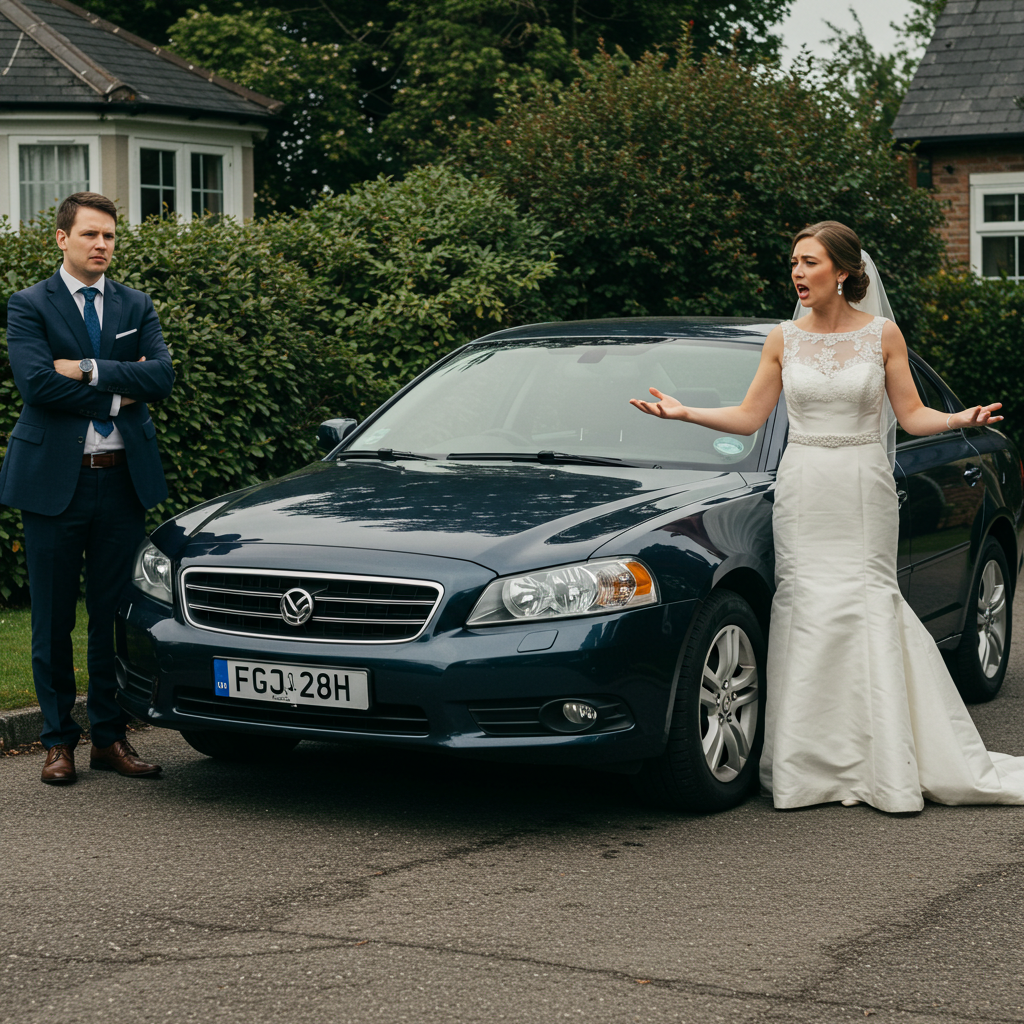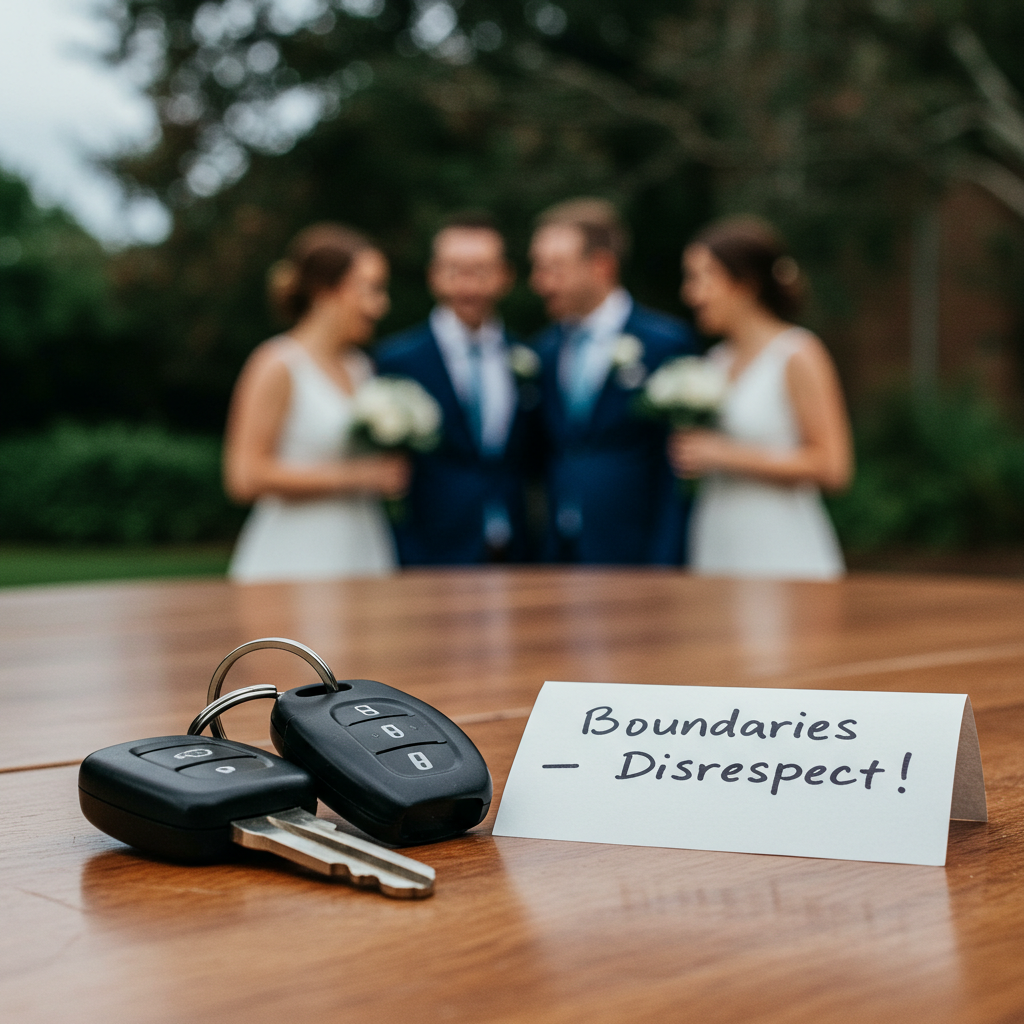AITAH for Refusing to Lend My Car to My Brother for His Wedding?
When it comes to family events, weddings tend to bring out the best—and sometimes the worst—in people. In a recent r/AITAH post, one user shared how declining to lend their car to a sibling for a wedding led to accusations of being selfish and unsupportive. But is protecting your property really such a terrible offense?
In this post, we’ll dive into the details of the situation, explore the line between familial generosity and personal boundaries, and help you decide whether this refusal makes someone an inconsiderate sibling—or just a responsible adult.
The Scenario: One Car, One Wedding, One Heated Argument

The original poster (OP) explained that they have a reliable, well-maintained car that they use daily for work and errands. Their younger brother, who was getting married, asked if he could borrow it for the entire wedding weekend—Friday to Sunday—including for transporting guests and driving to the venue.
OP declined. Not because they didn’t want to help, but because they couldn’t afford to be without a vehicle for that long and were worried about potential damage. The brother was furious. He accused OP of being selfish and claimed that “family comes first.” Other relatives chimed in, suggesting that OP was making the celebration about themselves.
So OP took to Reddit and asked: “AITAH for saying no?”
Why Saying “No” Doesn’t Make You a Bad Sibling

Refusing a favor—especially a big one—doesn’t automatically make you wrong. Here’s why OP’s decision is more reasonable than it might seem:
1. Cars Are Expensive and Personal
A car isn’t just a vehicle—it’s a lifeline. Whether it’s for commuting, emergencies, or errands, being without a car can disrupt someone’s entire routine. And if something goes wrong (accidents, scratches, breakdowns), the financial fallout can be significant.
2. Lending Isn’t Always Helping
Sometimes, helping someone means setting limits. If OP felt uncomfortable handing over the keys, especially for a high-stakes event like a wedding, forcing themselves to comply might only build resentment.
3. You Can Support Without Sacrificing
OP offered alternatives—help with transportation for a few hours, or help arranging a rental car. But the brother rejected those suggestions, insisting on full access.
Navigating Boundaries During Family Events

Big life events tend to bring high emotions and higher expectations. Here’s how you can navigate situations like this without damaging relationships:
Communicate Early and Clearly
If you’re asked for something you can’t—or don’t want to—give, say so as soon as possible. Avoid vague answers like “maybe” or “we’ll see.” Clarity prevents false expectations.
Offer Alternatives
If you’re not comfortable granting a specific request, offer realistic alternatives. Could you help with logistics in a smaller way? Could you contribute time or money instead?
Stand Firm—Kindly
It’s okay to say no. Just say it with compassion. “I wish I could help, but I rely on my car daily and can’t risk being without it” is honest and respectful.
The Internet Weighs In

Reddit users overwhelmingly sided with OP. Comments highlighted how common it is for people to be guilt-tripped into doing things that make them uncomfortable—especially for family.
Many said that weddings, while special, shouldn’t give anyone a free pass to disregard others’ boundaries or property. Some even shared stories of lending vehicles for weddings, only to regret it after unexpected damage or drama.
Final Thoughts: When “No” Is a Form of Self-Respect

So, was OP the bad sibling? Based on the facts, not at all. Lending out your car for a weekend is a big ask, and refusing doesn’t mean you don’t care—it means you’re being realistic about your own needs.
Boundaries aren’t barriers to love; they’re the foundation of mutual respect. Supporting family doesn’t have to mean sacrificing your comfort or financial security.



